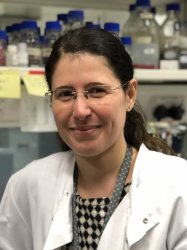Summary
Our group led is interested in different aspects of cancer, in particular at the genetic and epigenetic changes underlying breast and colon cancer. We are also interested in how modern cancer evolved from older form of the disease which can be found in fossils of both hominids and animals. Furthermore, we are also investigating the role of 5-hydroxymethylacytosine, in hypoxia conditions on different cell lines and in tissue samples, to determine its function in relation to both DNA and RNA in tumour onset and progression.
BREAST CANCER
Breast cancer is one of the most commonly diagnosed neoplasms in the world, with more than 50000 cases diagnosed in the UK. Early full-term pregnancy decreases long-term breast cancer risk, while leading to transient increase in risk of having cancer diagnosed soon after pregnancy. On the contrary, women bearing a child at a later age are more at risk in developing cancer compared to nulliparous women. By analysing low frequencies genomic DNA mutations in the normal and malignant mammary epithelium, we would like to understand the molecular dynamics underlying the correlation between age of first pregnancy and risk in developing breast cancer.
This project is funded by Action Against Cancer.
BIOGRAPHY
During the course of her BSc in Molecular Biology from the University of Padua, Italy, Dr Biancastella Cereser developed her first interest on breast cancer in the group of Prof Antonino Carbone and Dr Annunziata Gloghini in the National Cancer Institute Aviano, Italy. She went on to achieve a MSc in Molecular Biology from the University of Padua, in collaboration with the group of Dr Maria Grazia Masucci in the Karolinska Institute, Sweden.
In 2006, Dr Cereser joined Queen Mary University of London, where she completed a PhD in the group of Prof Ken Parkinson, investigating the non-canonical functions of telomerase in keratinocytes. She then joined Prof Malcolm Alison, Dr Stuart McDonald and Sir Nick Wright's group in the same university, where as a member of staff she developed particular expertise in the genetic analysis of epithelial premalignant diseases, in particular colon adenomas and ductal carcinoma in situ.
Dr Cereser joined Imperial College London in 2016 as a research associate in the Cancer Genetics Group in the Department of Surgery and Cancer.
Dr Cereser is also a Fellow of the Higher Education Academy (FHEA)
Selected Publications
Journal Articles
Carter P, Alifrangis CC, Cereser B, et al., 2018, Molecular profiling of advanced breast cancer tumors is beneficial in assisting clinical treatment plans, Oncotarget, Vol:9, ISSN:1949-2553, Pages:17589-17596
Cereser B, Jansen M, Austin E, et al., 2017, Analysis of clonal expansions through the normal and premalignant human breast epithelium reveals the presence of luminal stem cells., Journal of Pathology, Vol:244, ISSN:0022-3417, Pages:61-70
Baker AM, Cereser B, Melton S, et al., 2014, Quantification of Crypt and Stem Cell Evolution in the Normal and Neoplastic Human Colon, Cell Reports, Vol:8, ISSN:2211-1247, Pages:940-947
Humphries A, Cereser B, Gay LJ, et al., 2013, Lineage tracing reveals multipotent stem cells maintain human adenomas and the pattern of clonal expansion in tumor evolution, Proceedings of the National Academy of Sciences of the United States of America, Vol:110, ISSN:0027-8424, Pages:E2490-E2499

